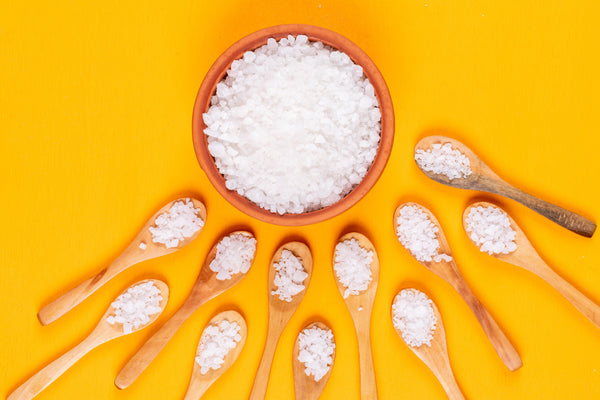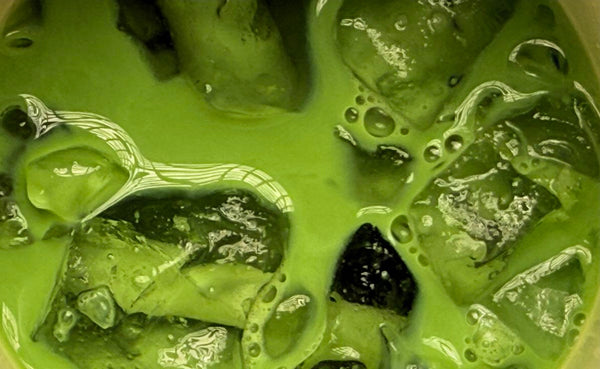Menstrual Diarrhea is a common condition that affects many women during their menstrual cycle. It can be a distressing and uncomfortable experience, but understanding its causes and learning how to manage it can significantly improve the overall well-being of women during this time.
Understanding Menstrual Diarrhea (Period Poops)
What is Menstrual Diarrhea?
Menstrual diarrhea, also known as period poops, refers to loose or watery bowel movements that occur during a woman's menstrual period. While it can be a bothersome symptom, it is usually not a cause for concern. Although diarrhea during menstruation is more common than generally recognized, many women mistake it for a sign of a gastrointestinal disorder. It is important to differentiate between menstrual diarrhea and other gastrointestinal issues to receive appropriate management.
The Connection Between Menstruation and Diarrhea
The menstrual cycle involves complex hormonal changes that can have far-reaching effects on different parts of the body, including the gastrointestinal system. The release of prostaglandins, particularly during the onset of menstruation, can lead to an increase in bowel contractions, causing diarrhea.
The rise and fall of hormonal levels throughout the cycle can disrupt normal gastrointestinal function, contributing to diarrhea in some women.
Moreover, stress and anxiety, common companions of menstruation, can also exacerbate gastrointestinal symptoms like diarrhea. The body's response to stress can trigger changes in gut motility and sensitivity, potentially worsening diarrhea during periods.
It is essential for individuals experiencing menstrual diarrhea to practice stress-reducing techniques such as deep breathing, meditation, or yoga to help alleviate these symptoms.
Managing Menstrual Diarrhea
For women dealing with menstrual diarrhea, several strategies can help alleviate discomfort and manage symptoms.
Diet: Maintaining a balanced diet rich in fiber and staying hydrated can promote healthy bowel movements and reduce the severity of diarrhea.
Foods to Avoid: Avoiding trigger foods such as caffeine, alcohol, and high-fat items during the menstrual period can also help in managing gastrointestinal symptoms.
Healthcare Consultation: In cases where menstrual diarrhea is particularly bothersome, consulting a healthcare provider for further evaluation and potential treatment options is advisable.
Causes of Menstrual Diarrhea
Hormonal Changes and Their Impact
As mentioned earlier, hormonal fluctuations during the menstrual cycle play a significant role in the occurrence of diarrhea.
Prostaglandins: Prostaglandins are released to help facilitate the shedding of the uterine lining, but they can also affect the digestive system. Excess prostaglandins can enter the bloodstream, causing the intestine to contract more frequently, and lead to menstrual diarrhea. Moreover, this alteration in gut motility can result in accelerated transit time, leading to period poops.
Hormonal Changes: The changes in estrogen and progesterone that occur during menstruation can also affect the motility of the gastrointestinal tract, disrupt normal bowel movement patterns, and contribute to menstrual diarrhea.
Increased Blood Flow to the Pelvis: The uterus receives a greater blood supply during menstruation. This can also cause a heightened blood flow to the intestines, leading to period poops.
Inflammation: The human body responds to menstruation by causing inflammation, which affects the gastrointestinal tract. This inflammatory response can contribute to increased bowel movement and hence, menstrual diarrhea.
Dietary Factors: The foods we consume during our menstrual cycle can also influence bowel movements. Some women may experience diarrhea due to increased sensitivity to certain foods or beverages, such as caffeine or spicy foods. It is advisable to observe any dietary triggers and make appropriate adjustments, such as reducing the consumption of potential irritants, to help manage menstrual diarrhea.
Hydration: Hydration levels can play a crucial role in gastrointestinal function during menstruation. Dehydration, which can be exacerbated by factors like blood loss and increased physical activity, may lead to softer stools and contribute to period poops.
Managing Menstrual Diarrhea
While it can be uncomfortable and disruptive, there are various ways to manage period poops and alleviate this symptom. In addition to seeking medical advice, understanding the potential causes of menstrual diarrhea can help manage and find relief for this condition.
Medical Treatments and Remedies
Medications such as antidiarrheals or pain relievers may be prescribed to alleviate symptoms. However, it is important to discuss the potential side effects and risks associated with these medications with your healthcare provider.
Your healthcare provider may recommend hormonal therapy or birth control pills to help regulate hormone levels and potentially reduce the occurrence of menstrual diarrhea.
Lifestyle Changes for Period Poops
Implementing certain lifestyle changes can also help in managing menstrual diarrhea.
Deep Breathing Exercises: Deep breathing techniques can help calm the nervous system, reducing stress and its impact on the digestive system. By promoting relaxation, these exercises can decrease intestinal spasms and alleviate diarrhea.
Yoga: Specific poses, like the Child’s Pose and Reclining Twist, can help relax the muscles and improve digestion to reduce menstrual pain and stress, hence easing symptoms of menstrual diarrhea.
Meditation: Regular meditation can reduce stress hormones, promoting a sense of calm and improving overall gastrointestinal health. This relaxation technique helps manage stress-related bowel symptoms during menstruation.
Heat Therapy
Applying applying heat to the lower abdomen may help ease discomfort and relieve gastrointestinal symptoms. It can relax the muscles and reduce cramps associated with menstrual diarrhea. Heat increases blood flow and can soothe the intestinal muscles, alleviating discomfort.
Hydration
Adequate fluids can contribute to normal bowel movements. Herbal teas are a good way of improving hydration along with calming bioactives to relieve menstrual diarrhea problems.
Herbal Teas
Drinking herbal teas like chamomile or peppermint can have a calming effect on the digestive system. These teas can reduce inflammation and intestinal spasms, helping to manage diarrhea.
Aromatherapy
Essential oils such as lavender or chamomile in a diffuser can promote relaxation and reduce stress. The calming effects of aromatherapy can help ease digestive issues during menstruation.
Diet
Incorporate foods rich in micronutrients such as vitamins and minerals. Additionally, soluble fiber foods are also ideal for improving bowel movements, along with probiotics for digestion.
- Banana
- Plain rice
- Applesauce
- Yogurt
- Oats
Foods to Avoid for Menstrual Diarrhea
- Fried foods
- Heavy cream
- Caffeine
- Dairy products
- Spicy foods
- Alcohol
- Raw vegetables
- High-fiber foods
Avoiding spicy, greasy, high-fiber or high-fat foods during this time can also help reduce gastrointestinal distress. Furthermore, keeping a food diary to track your diet during your menstrual cycle can help identify any trigger foods that may exacerbate your period poops.
Premenstrual Diarrhea: An Overview
Defining Premenstrual Diarrhea
Premenstrual diarrhea refers to loose stools or increased bowel movements that occur in the days leading up to menstruation. It can be experienced alongside other premenstrual symptoms, such as bloating or mood changes.
For some individuals, premenstrual diarrhea can be a recurring issue that impacts their quality of life. The discomfort and inconvenience caused by this condition can vary from mild to severe, with some experiencing cramping and urgency in addition to frequent bowel movements. Understanding the triggers and patterns of premenstrual diarrhea can help individuals better manage and alleviate their symptoms.
How Common is Premenstrual Diarrhea?
Premenstrual diarrhea affects a significant number of women, although it is often underreported or misattributed to dietary factors or other gastrointestinal conditions.
Research suggests that the prevalence of premenstrual diarrhea may be higher than commonly perceived, with studies indicating that up to 20% of women of reproductive age experience this symptom. Despite its prevalence, the topic of premenstrual diarrhea is not widely discussed, leading to misconceptions and a lack of awareness surrounding effective treatment options.
Period Bloating Explained
What is Period Bloating?
Bloating is a common symptom experienced by many women during their menstrual cycle. It is characterized by a feeling of fullness, tightness, or swelling in the abdomen. The rise and fall of estrogen and progesterone levels contribute to fluid retention, leading to bloating. Additionally, increased gas production and slowed digestion can further exacerbate this symptom.
Why Does Bloating Occur During Periods?
During menstruation, the body undergoes various hormonal shifts that can impact how it retains water and processes food. Estrogen levels rise in the first half of the menstrual cycle, promoting the buildup of the uterine lining. As estrogen peaks and then declines, progesterone levels increase to support the implantation of a fertilized egg. These fluctuations can disrupt the body's natural balance, causing bloating as a result.
The Role of Progesterone and Estrogen
Progesterone and estrogen, the primary female sex hormones, play a significant role in regulating the menstrual cycle and its associated symptoms. These hormones influence fluid balance and digestive processes, leading to bloating during periods. Understanding the hormonal interplay will help in effectively managing and mitigating the discomfort caused by bloating.
Aside from hormonal influences, lifestyle factors can also impact bloating during menstruation.
High-sodium foods: Can lead to water retention and exacerbate bloating.
Stress: Triggers hormonal imbalances that may worsen bloating symptoms.
Maintaining a balanced diet, staying hydrated, and practicing stress-reducing activities like yoga or meditation can help alleviate bloating during periods.
Other Gastric Problems During Periods
In addition to menstrual diarrhea and bloating, some women may experience other gastric problems during their periods. These may include:
- Abdominal cramps
- Nausea
- Changes in appetite
While these symptoms can vary in intensity and duration, implementing similar management strategies to menstrual diarrhea and bloating, such as lifestyle modifications, heat therapy, or seeking medical advice, can alleviate these discomforts.
Conclusion
Menstrual diarrhea is a common issue for many women during their menstrual cycles, often caused by hormonal fluctuations and dietary factors. Understanding these causes is key to managing the condition effectively. Implementing lifestyle changes, seeking medical advice when necessary, and comprehending the role of hormones can help women better manage menstrual diarrhea and related gastric problems. By prioritizing well-being and proactively addressing symptoms, women can achieve a more comfortable and symptom-free menstrual cycle.


























 DOWNLOAD NOW
DOWNLOAD NOW
